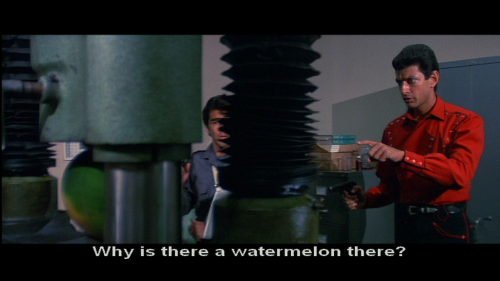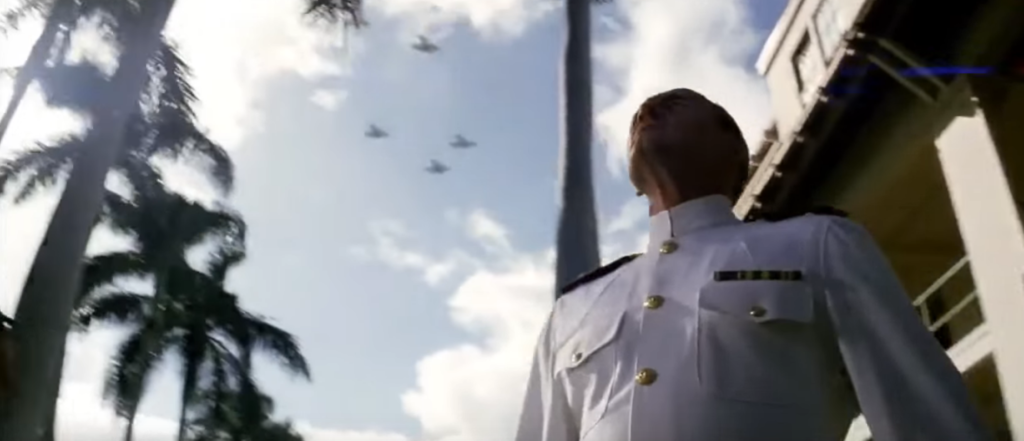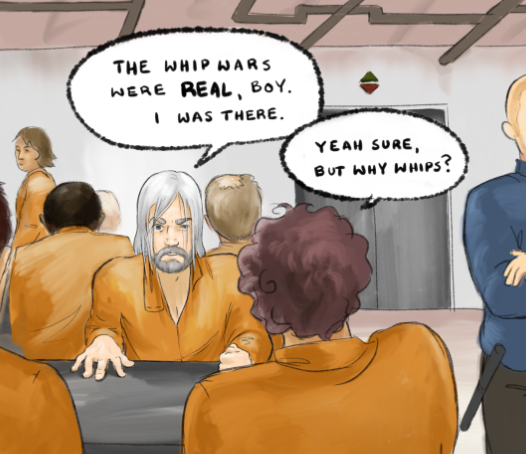Livejournal Throwback!
Currently Listening to: The True Survivor We Share: Chvches vs Kung Fury, a mashup by “Yepp I’m the Toaster”

Buckaroo Banzai, 1984
I know I’ve had this discussion with most of my friends at this point, but I wanted to talk a little about how much I miss the 80s way of world building.
80s movies had a lot more faith in the viewers ability to figure shit out on their own. Sometimes things would just happen, and that was all. We’d never go back to it. No explanation. No callback. Nothing.
I miss this kind of… sketchiness to describing setting. It often came off like I was just stepping into a series midstream. Like these weird little unused props, unexplained events, and characters that show up for one scene were just intersecting the story I was seeing for a moment and passing through to something else.

Allowing something to exist in a world that’s not pertinent to the story at hand is like the storytelling equivalent of this shot from Michael Bay. Say what you will, dude knows how to make things look huge.
There are planes flying in the background, but the character isn’t looking at them. He’s looking off-screen, implying the existence of even more planes. Leaving some of your world off-stage makes the world bigger.
I feel like story-tellers, particularly in film and stage formats, forget that. They often become obsessed with the idea of the “gun on the wall”. They feel like everything has to be used for something, or it’s a waste of time. They lose thickness and texture, in the name of efficiency.
On the other hand, there’s a way to abuse this kind of world building as well. “Lost”, being the most famous example (that I’ve honestly never seen), where the writers lean into mystery, but without having an explanation themselves. I mean, it should go without saying that you can’t write a mystery without knowing what the solution is. A lot of people can tell when you’re feeding them bullshit, and the ones who can’t off the bat will be pissed when they figure it out.

(Not saying this was a flawless execution of this idea, just that I’m learning.)
In my mind, the best way to set up a world is to know details of the setting pretty far past the “frame” of the story, and then use these little unexplained moments of mystery to imply the existence of something more.
Don’t over-explain, or the audience will run into the invisible walls (like the edge of a video game world).
But putting things in that don’t have an explanation leads to paradoxes and other nonsense.
To do this, I need to know the scope of the story before I start. And I need to be willing to trust my audience enough to figure things out on their own.
Which, honestly, has never been my weak point. Historically, I tend to under-explain things in my scripts. I should write about that learning process on of these days…

